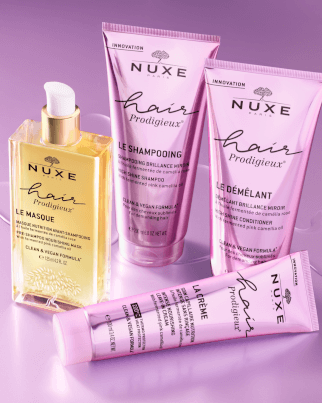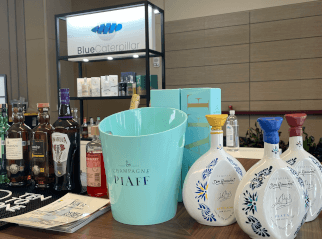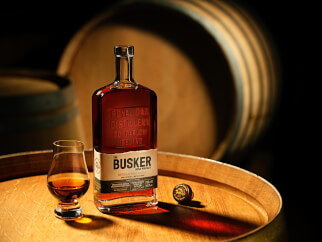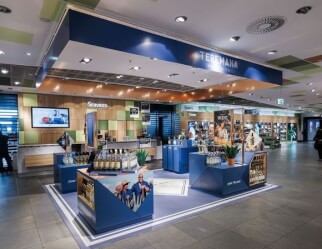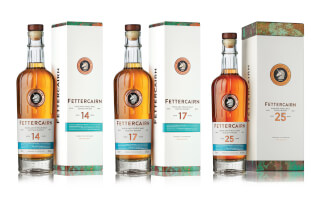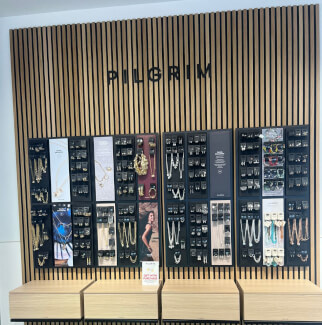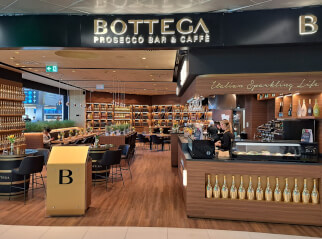Blue Water Bridge execs take a closer look at Canadian border store business
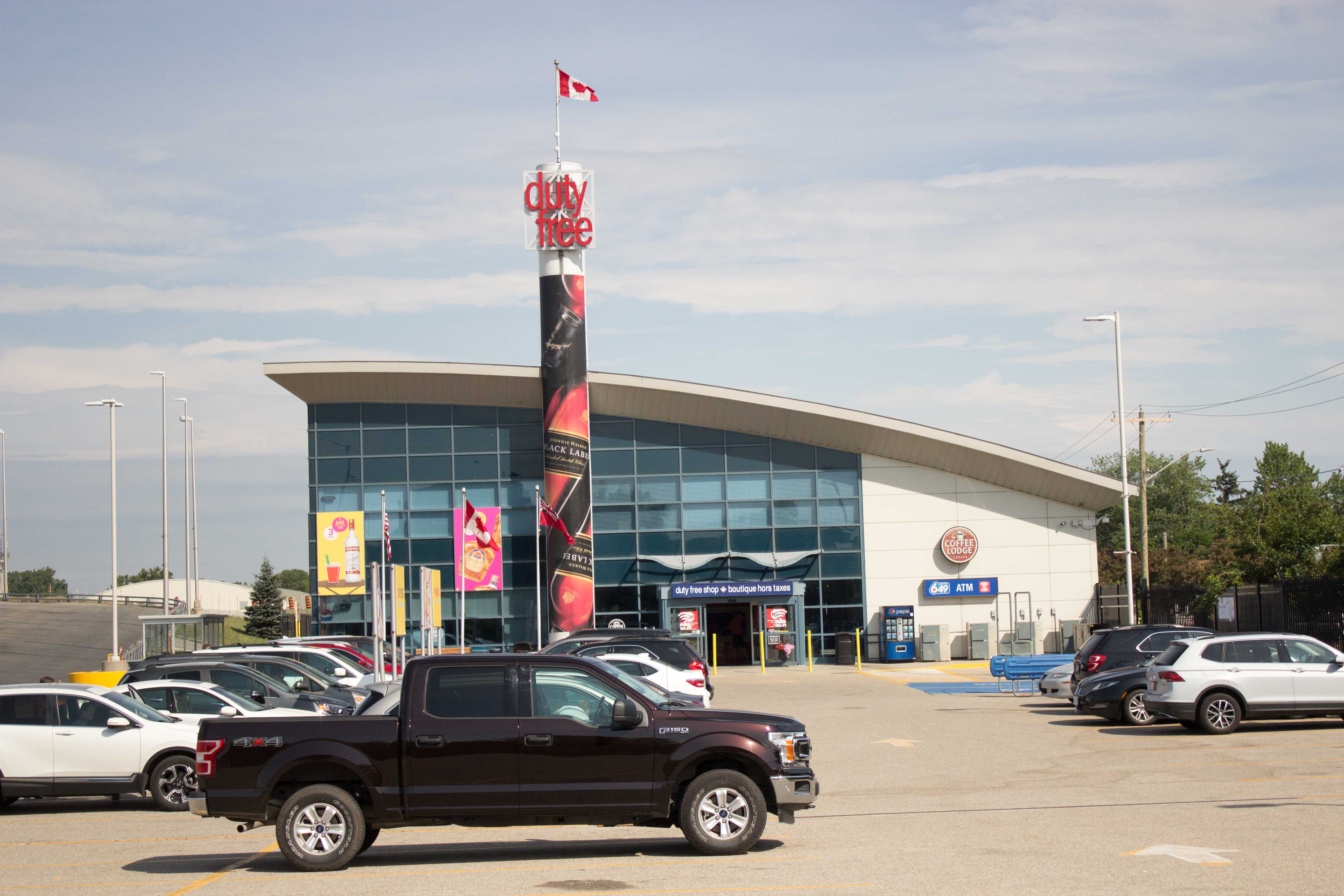
Blue Water Bridge Duty Free execs share details on the current situation at Canadian border stores
In-between samplings and swag bags, while attending the FDFA 2019 Convention in Toronto, Americas Duty Free sat down with Blue Water Bridge Duty Free Shop’s Gerry Lee, Operations Manager, and Peter Brain, Business Manager, to discuss the Canadian border business and talk shop.
Although the drastically changing landscape is experiencing a number of challenges including border issues, an unresolved visitor rebate program and a labeling-based matter, the veteran team believes in the fall season, the restoration of the program and a win in the labeling department will provide a necessary “boost of turbo energy” into the industry.
A challenging climate
Describing the duty free experience as a mindset, Lee and Brain say it’s difficult to motivate travelers to pull over and shop after spending significant time waiting in line at the border. Along with back-ups, with the reallocation of officers and resources on the American side, the border business is heavily influenced by the US political agenda and a lack of personnel. It’s this type of economic uncertainty that represents a sign of the times and leads to volatile exchange rates and unpredictable travel patterns. In other words: multiple factors that cause a reluctance to cross the border are beyond the control of the industry. As Lee puts it: “In the end, there’s only so much you can do.” The subsiding peak season traffic has offered more time to buy and browse. The traffic is now flowing and business is picking up, as people feel they have more time to shop in the store, they report.
Diving into the topic of the reinstatement of the visitor rebate program, at this point it seems like it’s a waiting game. Although the so-called “bloated” program ended in 2007 as part of a government decision to reduce spending, the cut left Canada as one of the only countries in the OECD without some form of tax rebate program in terms of its tourism offering. Recognizing the drawbacks of its absence, the Retail Council of Canada approached the FDFA to help reverse the decision. A social media campaign has been launched to educate the public that the association is working to bring back the program.
Brain describes the program as “a great marketing tool”, as there are so many opportunities to promote it, and it’s a good way to incentivize people to stop and shop on the border.
A snapshot of the advantages of the program:
- Duty free is the only component of the original program that is a front-line and direct benefit for visitors to Canada who receive cash on the spot and can spend their rebates in-store
- The program is highly secure and offers an element of legitimacy via auditing; the ability to verify both travelers and goods are leaving the country
- The only cost of the program for the government will be the reimbursement of taxes
To make the decision easier, the industry is positioning the pitch so that most of the administrative burden will be placed on the retailers, as opposed to the government. Although there is no guaranteed time frame for approval – especially with a minority government in place – one major plus is having the support of the Retail Council of Canada. Fingers crossed, duty free shop operators hope the program may be relaunched within the upcoming year.
In addition to working to bring back the visitor rebate program, Blue Water Bridge Duty Free is working with the FDFA on a liquor labelling issue of great importance.According to Brain, the liquor industry is introducing a “myriad” of new flavored products and due to differences in the legal regulations governing product labeling between the USA and Canada, Canadian duty free shop operators are at risk of not being able to offer this growing class of products that exist in the USA and around the world.
According to Blue Water Bridge Duty Free, the facts of the case are:
- When selling liquor products (i.e. a new flavor of vodka), Canadian duty free shops are legally obliged to comply with the new health labeling requirements of Canada, even though their sales are for immediate export to the USA.
- Many of these new flavored liquor products are not available with the appropriate Canadian labels on them.The liquor suppliers will only produce them with labels meeting the requirements of the larger US market, due to production cost issues.
- The FDFA is lobbying the Canadian government to exempt Canadian duty free shops from Canadian liquor labeling requirements, on the basis that their sales are for export only to the USA, and therefore the products should only have to adhere to US labeling requirements.
- The Canadian Food Inspection Agency has stated that they accept that duty free shop sales are exports, so hopefully the FDFA will be able to gain this exemption to the Canadian labeling regulations sometime in the coming year.
A change in the marketplace
Having experienced a flat spring and summer season for the reasons listed above, Blue Water Bridge Duty Free Shop reported a single-digit decrease (6-7%) in both commercial and passenger traffic. Considering the climate, the Sarnia-based team is fortunate to have maintained its 2018 sales.
In speaking with the duo about their retail destination, it’s evident that fundamental changes in the marketplace are impacting basic in-store decision-making such as the re-configuration of floor space, shelf rotation and display themes.
Most significantly, the shift in buying power is transforming the retail landscape, leading to the closing of established brick and mortar companies and posing the question among suppliers and retailers: how do you position yourself to be more interesting to the consumer? The (temporary) answer is to offer a variety of options (size, price, flavor, concept, packaging and so on) and post-worthy product lines and brand activations, which is a logistical challenge.
Along with its competition, Blue Water Bridge Duty Free is looking for ways to attract millennials to the duty free shopping experience. The key to success is recognizing the shared values of the generation and navigating its marijuana and liquor behavioral patterns. Lee nailed it on the head when he commented that all members of the target market want is authenticity, while Brain noted their desire for socially responsible initiatives.
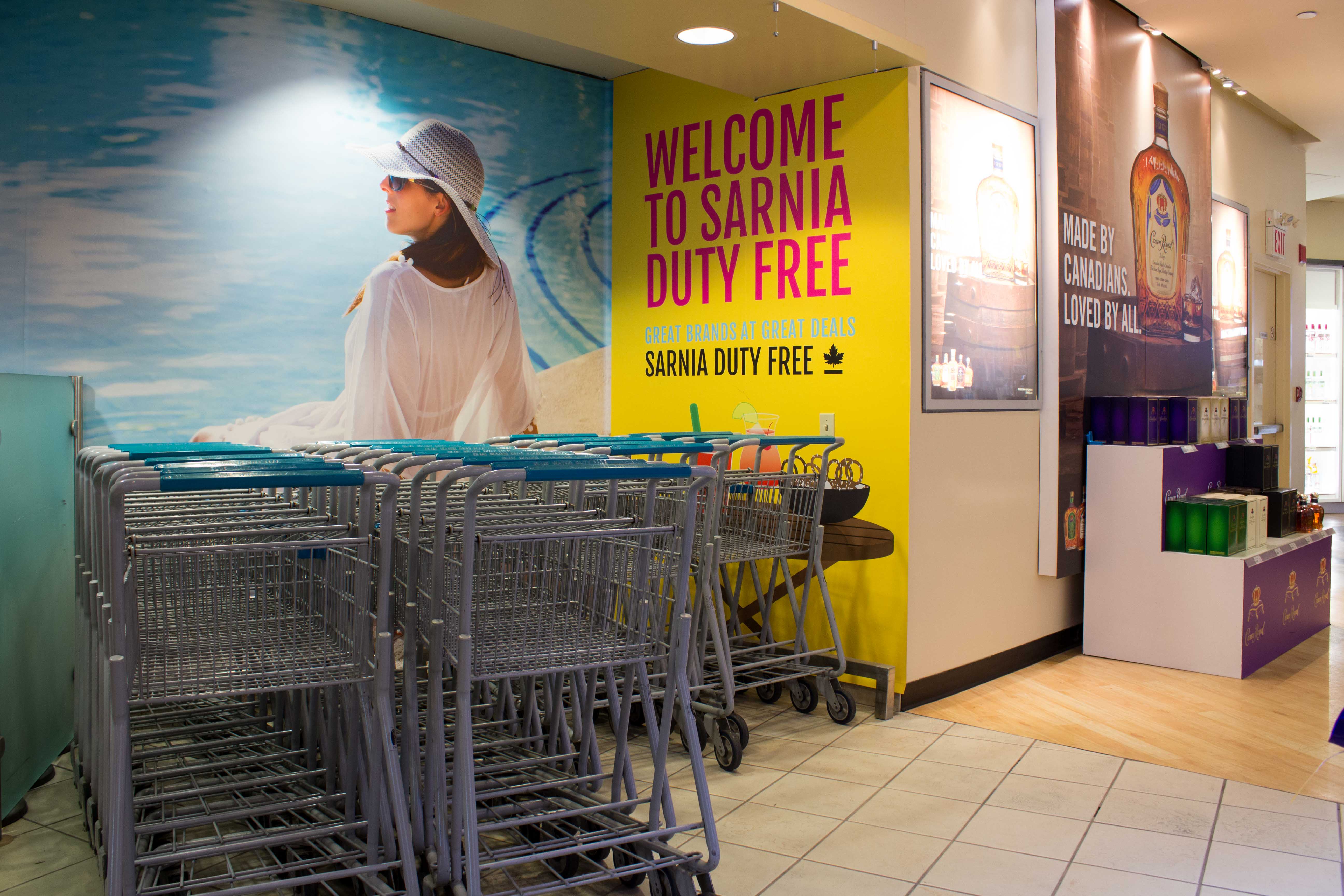
Other snaps from Blue Water Bridge Duty Free located in Sarnia
Takeaways from our talk:- Reversing its decade(s)-old strategy, Blue Water Bridge Duty Free hopes to draw in millennials with products that they care about, and that they will also buy the traditional duty free offerings out of convenience when they stop and shop.
- Practicing an overall decrease in alcohol intake, millennials tend to purchase liquor less frequently and at a higher price point
- The duty free industry is continuing to struggle with the long-term decline of tobacco consumption – and the spreading out of sales into other areas is critical to future growth.
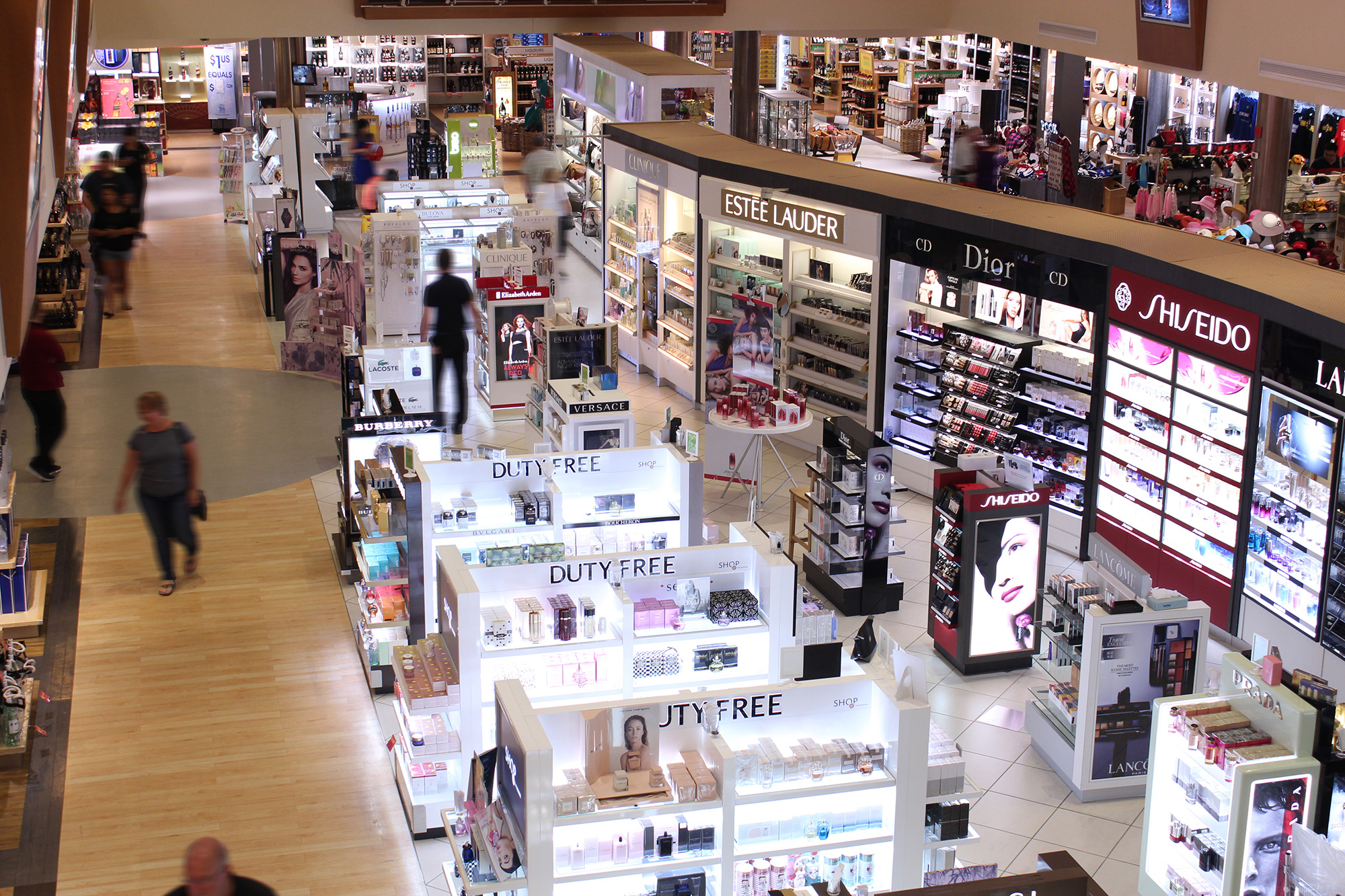
Blue Water Bridge Duty Free is looking at reconfiguring a couple of areas of its store. In the back section, where beer and male-targeted products are displayed, it is working on a male-oriented concept. It is also looking at a regional great outdoors area aimed at outdoor sports enthusiasts. “We have more people crossing frequently than 20 years ago,” says Brain. “it’s not just vacationers, it’s people going over for a quick trip. We want them to think there’s something in there I might want, rather than just liquor, which I might buy periodically.”
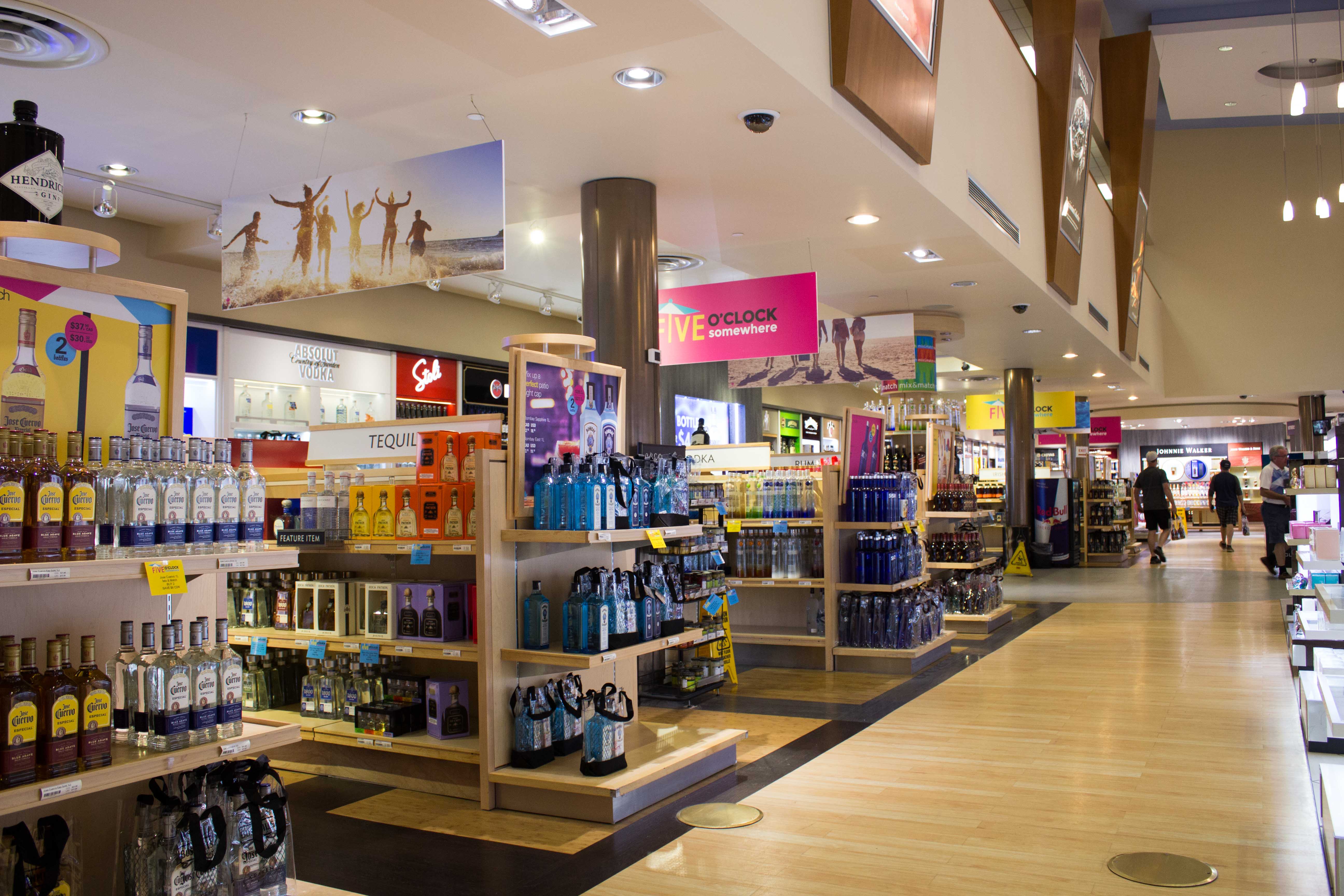
Similar to the boost of turbo energy that the team of two hopes the industry will encounter in the coming months, Lee and Brain explained that attendees of the FDFA Conference 2019 encountered a positive shock to the system this year. With its change in format, owners, operators, suppliers and associate members across the country welcomed a more accessible location, a compressed schedule and an intimate setting to further build relationships and meet new contacts.
The FDFA Conference will be hosted in Toronto, Ontario, through 2022.

